
Changing Work Preferences In The Age of GenAI
This is the second report in a series analysing the work preferences of global talent in 2024.
SUMMARY: The latest Decoding Global Talent series, created in collaboration with BCG and The Stepstone Group, reveals that job security has become a top priority for workers, alongside a growing openness to GenAI despite its potential disruptions. With nearly 900,000 responses, the data highlights shifting workplace values, emphasizing continuous learning, career development, and competitive financial compensation as key strategies for attracting and retaining talent in today’s dynamic global landscape. In this year’s survey, we examined a new influence on ways of working: GenAI. We asked participants if, how, and to what extent they use GenAI, and explored their views on how GenAI might impact their jobs.

“I’m not afraid of new beginnings. If you are afraid, that can limit your abilities. I feel confident that even if I lose a job, I can find another.” These are the words of Anne Granelli, a 54-year-old Swede currently working in Abu Dhabi in the healthcare field. Anne is a longtime participant in our Decoding Global Talent series and an early adopter of technologies, including GenAI.
In the ten years since we began tracking workplace trends in our Decoding Global Talent series, we have observed numerous opportunities for new beginnings. Ways of working have changed dynamically (in response to sudden shocks) and deterministically (due to long-term trends).
During this time, multiple factors—notably, the race for talent, geopolitical tensions, and economic instability—have disrupted global business operations. In addition to these immediate changes, workplace priorities continue to be shaped by longer-term macro trends: increased focus on climate and sustainability, renewed commitment to diversity, equity, and inclusion, major demographic shifts, and the ongoing appeal of global mobility. Together, these forces are creating a workplace that is constantly adapting to new realities and challenges. Amidst these shifts, workers and employers are also navigating the latest technological game-changer: GenAI.
Employers must understand what matters to workers and job seekers. To gain insights, we explored several key questions:
- What do workers value most in a job?
- How do job seekers perceive their position and negotiating power on the labor market?
- Do people use GenAI? What impact do they think GenAI will have on their jobs, and what are they planning to do to ensure that they have marketable skills now and in the future?
- What should employers do to attract and retain workers?
What Matters at Work Is Shifting
Feeling appreciated, getting along with coworkers, and maintaining a good work-life balance were the top workplace characteristics people valued a decade ago. Over time, having a good relationship with one’s superior also grew in importance. In 2021, amid the pandemic, while relationships and work-life balance remained significant, financial compensation gained importance as income stability became less reliable for many workers.
Today, we observe several interesting shifts in what workers want.
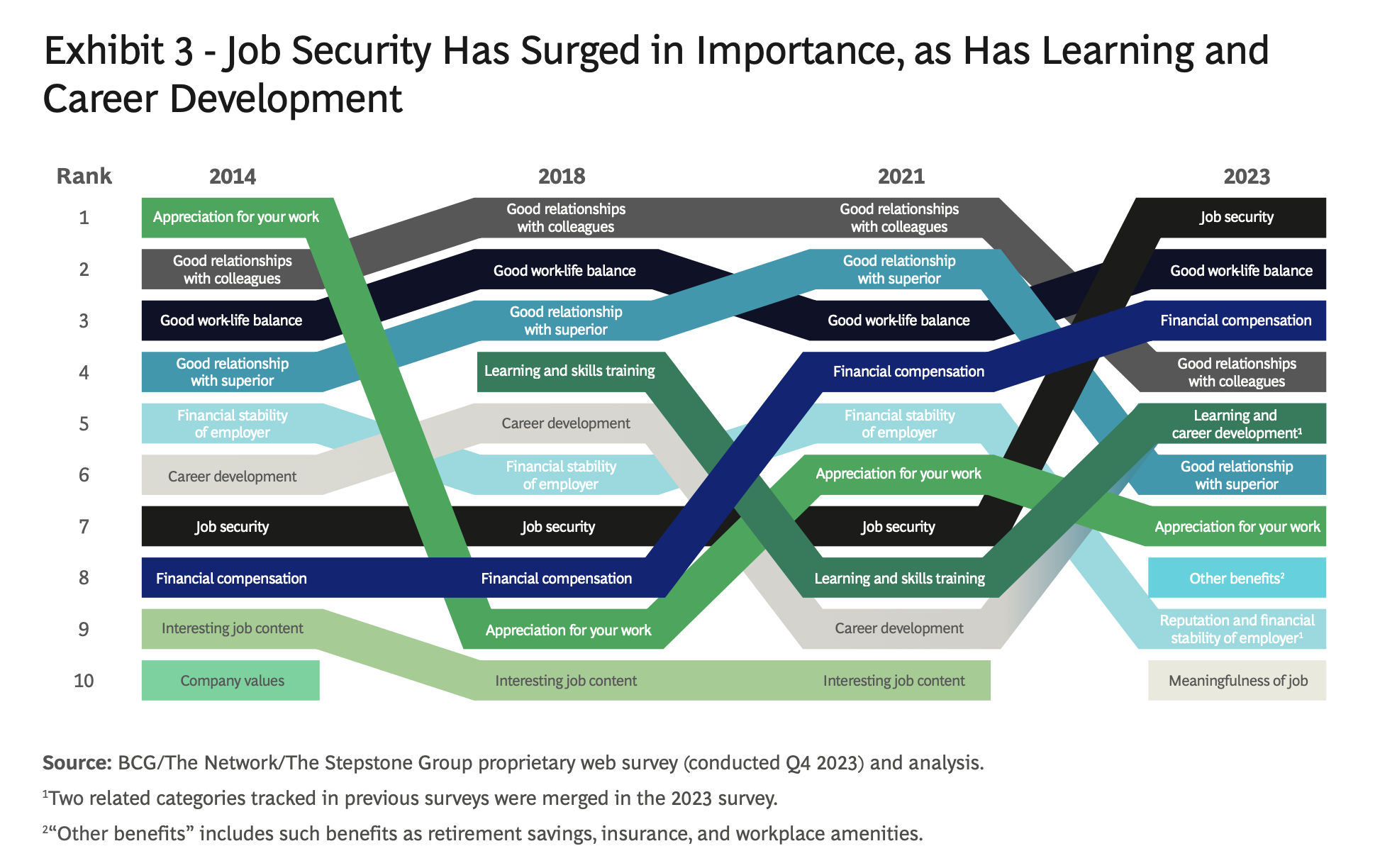
For the first time since we began our series, job security has become the top work preference. This might come as a surprise, given the current low unemployment rates and high job vacancies. However, recent headlines suggest that this emphasis on job security may stem from restructuring in several industries and increased geopolitical uncertainty.
We don’t think those are the main reasons. Instead, we believe that the response primarily reflects workers’ concerns about their long-term employability. Our data links the desire for job security with increased awareness of technological disruption. Respondents who expressed concern about the impact of GenAI on their jobs were more likely to prioritise job security. Technology’s effect on jobs is not new, but GenAI elevates disruption to a new level, affecting a diverse range of workers and impacting not only repetitive tasks but also creative and conceptual work. It’s easy to see why other attributes have also risen in importance: opportunities for learning and career development, financial compensation, and benefits such as retirement and insurance.
But Global Workers Remain Confident…
Over the past several years, the global demand for talent has steadily increased. In January 2024, the International Labour Organization reported that employers are still facing significant talent shortages. This issue is unlikely to be resolved in the near future. Against this backdrop, most of our respondents believe they have the upper hand in securing jobs that offer the features they desire. Their confidence is well-founded.
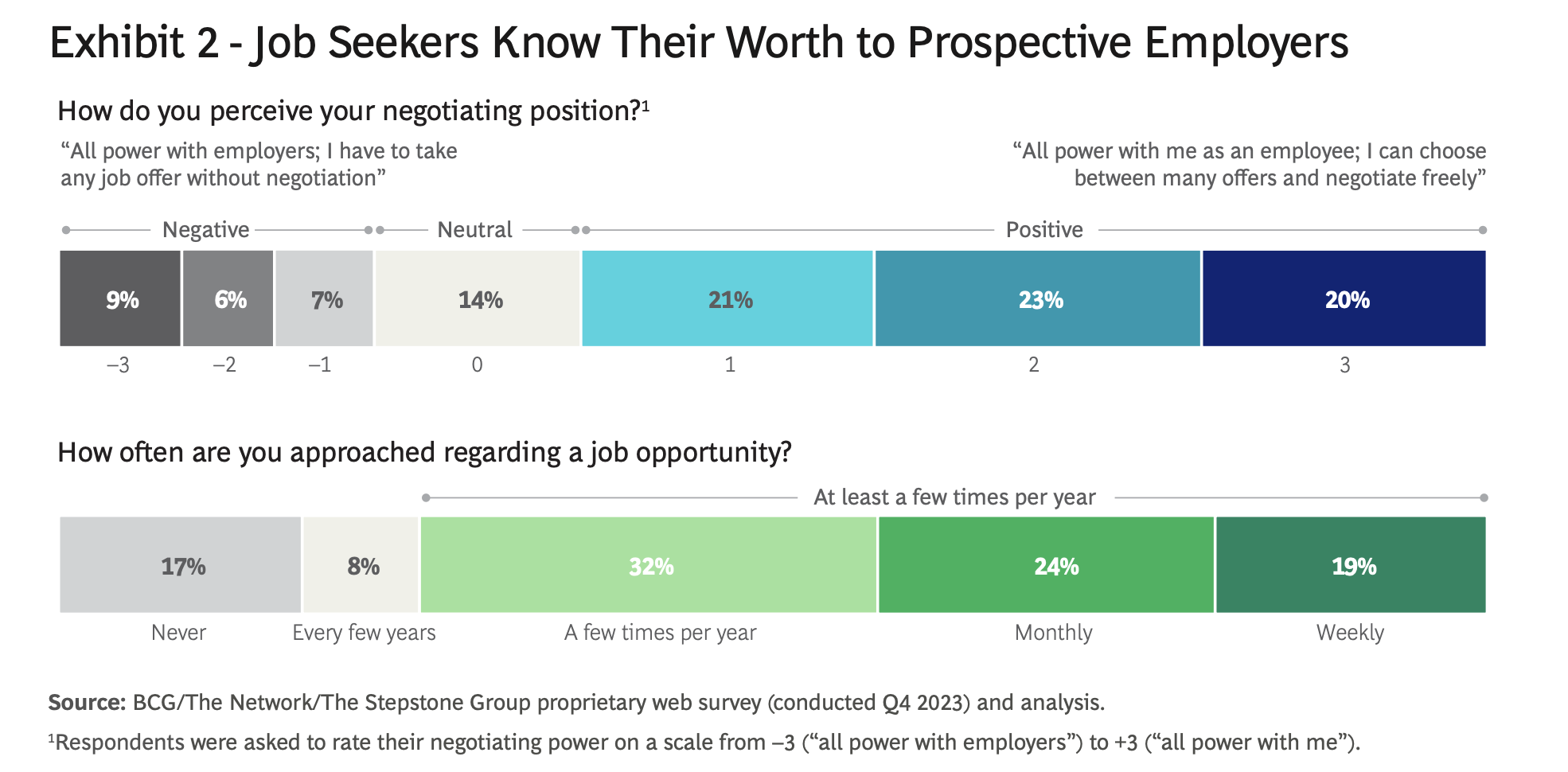
…Even in the Face of GenAI
Based on our survey results, GenAI doesn’t seem to pose a significant threat to livelihoods, contrary to many fears. Most workers aren’t overly concerned about AI pushing. However, respondents are not viewing the situation through rose-colored glasses. Most anticipate that their jobs will change, necessitating the development of new skills. Only a quarter of respondents believe that GenAI will not affect their jobs at all.
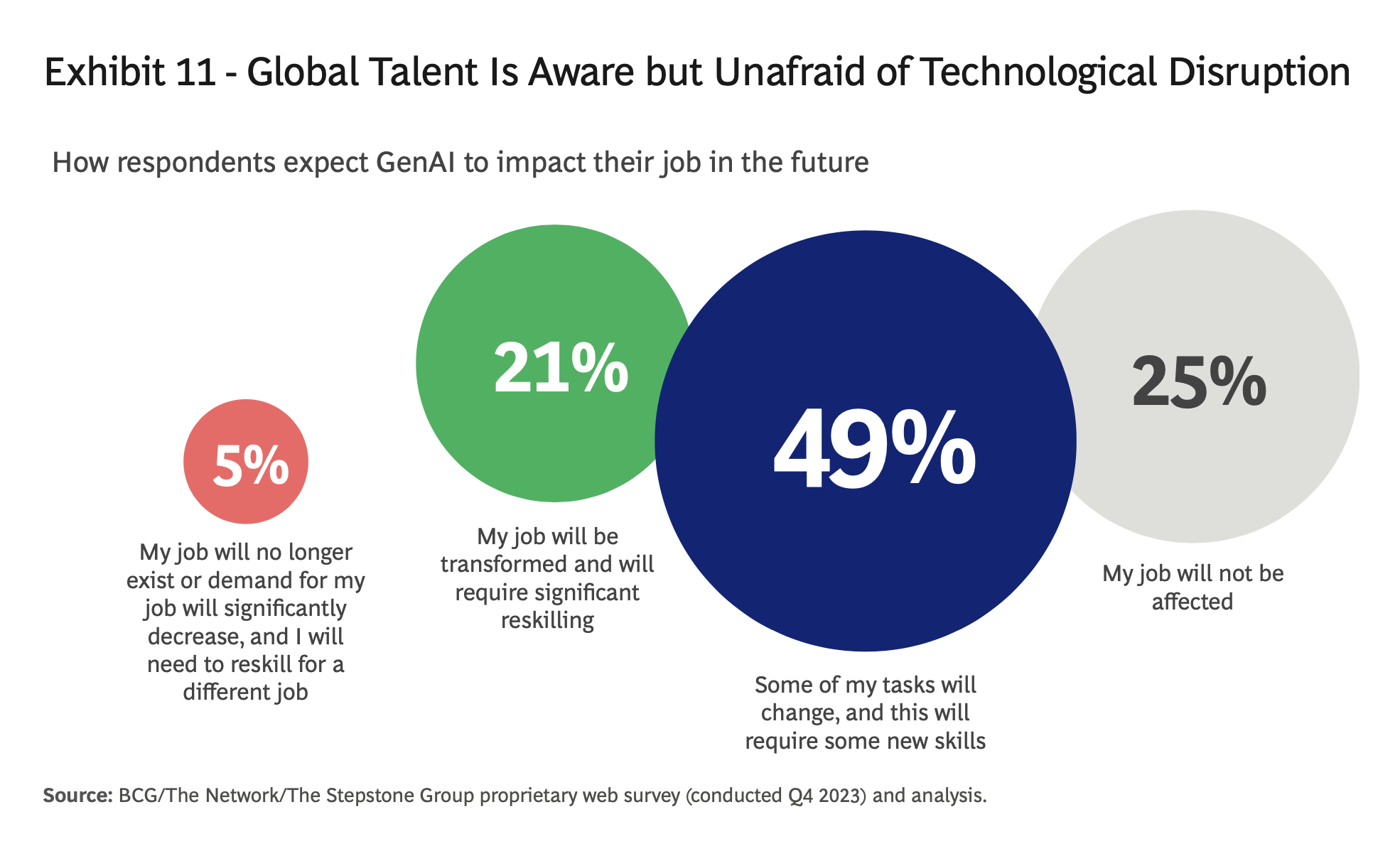
Talent Is Embracing GenAI and Ready to Reskill
To understand how workers envision their future careers, employers need to investigate their employees’ sentiments and relationships with GenAI. Our study sheds light on their openness to adopting GenAI and their willingness to reskill for new roles to stay competitive.

- 86% of respondents have heard about GenAI
- >50% have experimented with it at least once recently
- ~39% use it regularly, including 18% of respondents who use it several times a week
Our study goes into further details of what people use GenAI for, and how they perceive the key challenges and benefits. People are also open to reskilling, either because of GenAI or for other reasons. 57% of respondents would have no problem changing to a completely different role to stay employable.
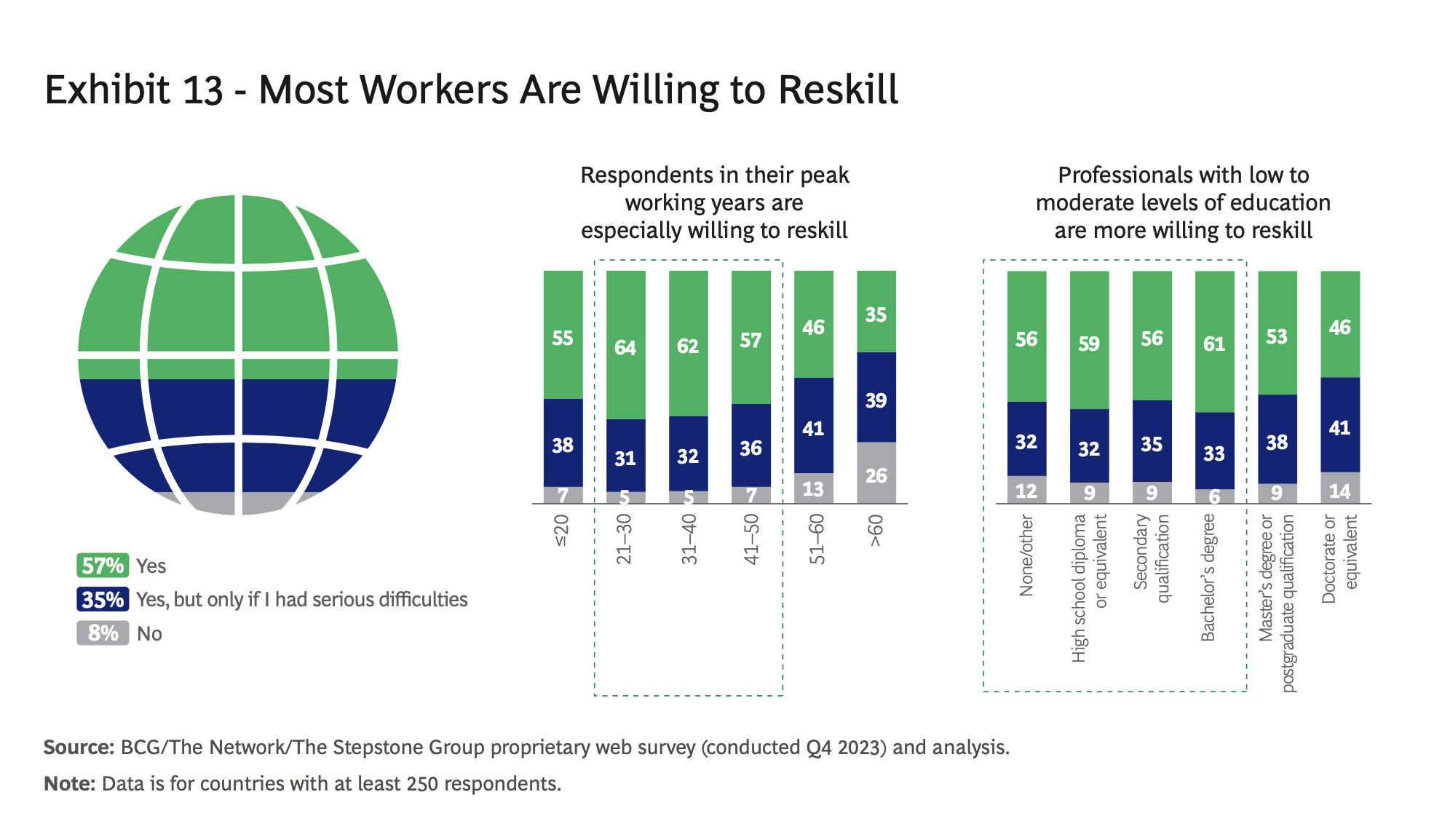
How Employers Can Meet Workforce Needs
Workers won’t make the decision to commit to an existing or new employer lightly, particularly during turbulent times. To address talent gaps, employers need to optimise the talent cycle.
Anticipating Talent Needs
- Forecast the impact of technology on the organization’s workforce.
- Shift to skills-based human resource management
Attracting Talent
- Know who to target and how to customize offers.
- Modernize and personalize recruitment.
Developing Talent
- Shift from traditional training to strategic skilling.
- Enhance GenAI adoption at work.
Engaging Talent
- Help employees process and manage uncertainty.
- Help people find joy in their work.
Our data shows that the workforce is open to change. We see this in respondents’ willingness to reskill and in their eagerness to embrace GenAI. As entrepreneur Manuel Milliery puts it, ”I think people need change. Evolution, not change. The prospect of evolving along with the company is really appealing.”
For Hideo Daikoku, the R&D engineer, that prospect is already a reality. In his job, he says, ”I get to have some autonomy and creative control over the things I do. I can devote time to explore new topics that are related to the company’s larger goals.”
Of course, given talent’s affinity for mobility, the quest for evolution can mean looking for new job opportunities, too. Tomilola Abiodun, 32, originally from Nigeria and now working as a product manager and running her own startup in the US, offers this advice: “There are many companies out there, many opportunities, and lots of things that you can do to make a difference. To think that you are stuck in a specific path or role would be a myopic view.”
Employers that can meet the evolving expectations of the workforce will gain a critical advantage in attracting and retaining talent in the highly mobile global labor market.
To download the full report, please, fill in the form below:
About the authors:


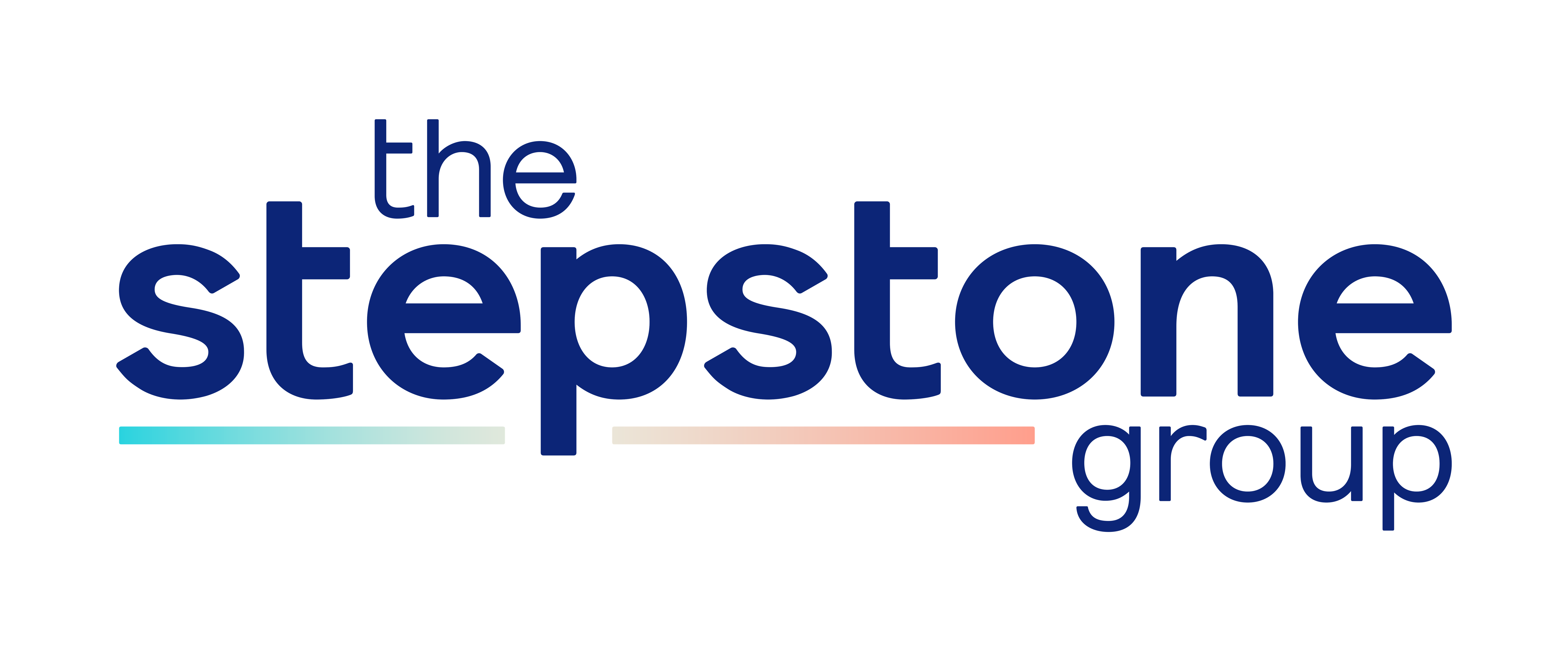
The Network is a global alliance of more than 70 leading recruitment websites committed to finding the best talent in over 150 countries. Founded in 2002, The Network has become the global leader in online recruitment, serving more than 2,000 global corporations. The recruitment websites in The Network attract almost 200 million unique visitors each month. For more information, please visit www.the-network.com.
Boston Consulting Group partners with leaders in business and society to tackle their most important challenges and capture their greatest opportunities. BCG was the pioneer in business strategy when it was founded in 1963. Today, the company helps clients with total transformation—inspiring complex change, enabling organisations to grow, building competitive advantage, and driving bottom-line impact. To succeed, organisations must blend digital and human capabilities. BCG’s diverse, global teams bring deep industry and functional expertise and a range of perspectives to spark change. The company delivers solutions through leading-edge management consulting along with technology and design, corporate and digital ventures—and business purpose. They work in a uniquely collaborative model across the firm and throughout all levels of the client organisation, generating results that allow our clients to thrive.
The Stepstone Group is a leading global digital recruitment platform that connects companies with the right talent and helps people find the right job. The Stepstone Group connects more than 110 million job applications with over 140,000 employers every year. With its integrated platforms, The Stepstone Group simplifies the candidates job search as well supporting recruiters with AI-powered solutions for the entire recruitment process. In 2022, The Stepstone Group generated revenue of around €1 billion. The Stepstone Group operates in more than 30 countries – including Stepstone in Germany, Appcast in the USA and Totaljobs in the UK. The company is headquartered in Düsseldorf, Germany and employs more than 4,000 people worldwide. For more information: www.thestepstonegroup.com/en/

